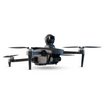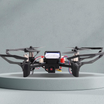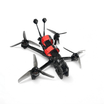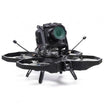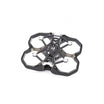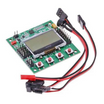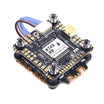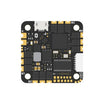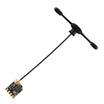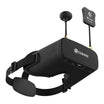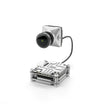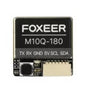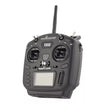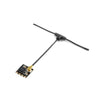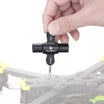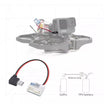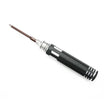Drones have a lot of potential uses in India, ranging from organ transfer to border surveillance. However, a recent LocalCircles survey indicates that most Indian consumers are not prepared to pay more for faster drone service when it comes to ecommerce and speedy commerce delivery.
With more than 22,000 responses from residents in 298 districts nationwide, the poll offers an intriguing look into how Indians view drone services and whether or not they are willing to use them for everyday necessities like food, medicine, or package delivery.
Major Drone Applications Expected in India
The survey sought to understand where Indians see drones making the biggest impact over the next five years. Responses from 11,419 participants highlighted several key areas:
Border Surveillance: Drones would be crucial in protecting India's borders, according to a resounding 91% of respondents, highlighting the technology's significance in defence.
Disaster Relief and Monitoring: Approximately 79% of respondents emphasize the use of drones in humanitarian missions by citing their use in evacuation, relief, and surveillance operations at disaster sites.
Transport of Organs and Medicines: A significant 53% of respondents anticipate using drones to carry vital medications and replacement organs, potentially saving lives.
City Surveillance: Roughly 47% believe drones will improve security and monitoring in cities.
Farm Surveillance: Around 30% of respondents think drones will assist in agricultural operations, such as crop monitoring and pest control.
Ecommerce Deliveries: Despite the growing buzz around drone-based deliveries, only 23% see a significant future for this application in India.
Interestingly, 7% of respondents expressed skepticism about drones being widely adopted in the next five years, while 2% offered no clear opinion.
The Stumbling Block: Paying for Drone Deliveries
One of the key aspects of the survey was assessing consumers’ willingness to pay extra for drone-based deliveries of e-commerce, food, or medicine orders. Out of 11,187 respondents, a staggering 87% stated they wouldn’t pay anything extra for such services.
Here’s how the responses break down:
- 87%: Refused to pay any additional charge.
- 3%: Willing to pay between ₹25-₹500.
- 3%: Open to paying ₹500-₹1000.
- 7%: Did not have a clear stance or chose “can’t say.”
This lack of enthusiasm for paying extra poses a significant challenge to companies experimenting with drone deliveries.
A Closer Look at Drone Delivery Feasibility
E-commerce and quick commerce platforms have been exploring drone deliveries to offer faster service, particularly in urban and semi-urban areas. However, these poll results show a disparity between what businesses are envisioning and what consumers are willing to accept.
Although drones have the potential to shorten delivery times and solve logistical issues in remote places, most Indians find the thought of paying more for drone-based delivery unappealing. Drone deliveries may remain a niche service, saved for critical requirements like medical emergencies, as only 6% of consumers are willing to pay for them.
Bridging the Gap Between Potential and Adoption
While drones hold undeniable promise for applications like border surveillance, disaster relief, and organ transportation, their use in commercial deliveries may need a rethinking of business models. Companies could focus on making drone logistics so efficient that the cost burden doesn’t fall on consumers.
One possibility is leveraging drone technology for bulk or long-distance shipments to distribution hubs rather than direct-to-consumer deliveries. This could optimize costs and make the system more viable for businesses.
Additionally, public awareness campaigns showcasing the benefits of drones, such as reduced carbon footprints and faster emergency responses, could help shift consumer mindsets over time.
The Road Ahead
As India moves towards implementing drone technology, the LocalCircles study shows both hope and realism. Although citizens view drones as revolutionary in vital fields like healthcare, disaster relief, and defence, their enthusiasm for everyday applications like parcel delivery remains muted.
For ecommerce and logistics companies, the message is clear: drone delivery services need to develop into an affordable option that doesn't require customers to pay more. If not, drones might only become popular in certain businesses or during emergencies rather than becoming a staple of daily life.
India’s drone revolution is well underway, but bridging the gap between potential and practical adoption will require innovation, efficiency, and a consumer-first approach. Only then can drones truly take off as a mainstream solution in the country.


